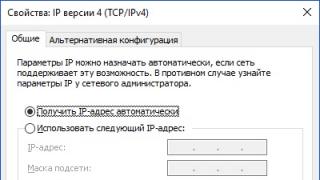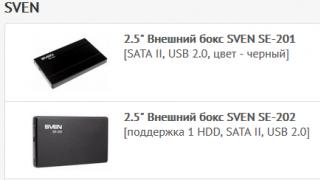Many companies would like to conclude a direct contract with the Russian Post and pay for services by bank transfer. Our company is no exception. Our office is located in Moscow.
So, the number one task is how to find the office of the Russian Post in Moscow, where you can conclude a Service Agreement. What is easier - on the website of the Russian Post there is a telephone for communication, we call. The music is modern, the girls answer friendly, but do not have information, so they constantly switched me somewhere and when switching, the phone flew off - then everything was new. It took three days to find out where the office of the Russian Post was. But we have strong nerves!
After three days, I came across a more informed employee who informed me that I should send a letter to the address [email protected] and wait. A response should come from the sales department. We wait! Three days later, a letter arrived with a bunch of forms and documents that need to be filled out! We understand that the Russian Post is a huge, bureaucratic organization ... We filled it out, sent it ... We are waiting. Four days later, confirmation came that everything was fine. The letter contains the address: Moscow, Myasnitskaya, 26. So here it is - the longed-for address!
In 2017, the Russian Post underwent a reorganization and, if earlier in each district of Moscow there was a branch where it was possible to conclude an Agreement with the Russian Post, now everything is only at Myasnitskaya, 26. And there are three people for the whole of Moscow processing Agreements.
We display a ton of documents in two copies. One of the documents turned out to have the same name, which means that it is not necessary to display it ... Let's go to Myasnitskaya, 26. We arrived, and this is a huge building with many entrances and, as always, no one knows where documents are accepted. After running for half an hour, I did find an inconspicuous building in the yard. I marked it in the picture - maybe it will come in handy for you so as not to run and not look!
I go up to the second floor, find the right room and the right employee. I send documents. It turned out that I did not display the same document with the same name, and I still need it! He asked very strongly and the heart of the postal worker trembled! An employee, at my request, brought out the missing document and accepted it for work.
Two weeks later we received a message that the Treaty had been concluded. Come! They came and took. We were informed how to receive invoices for payment. You must send a request to the e-mail address in an excel file and in three days you will receive invoices for payment. Moreover, you need to receive two separate accounts, one for communication services, the second for franking. About some kind of personal account on the site, where you can monitor your balance and current affairs in the Russian Post, they only smile, but somehow they smile nervously!
Last year, the Russian Post underwent a reorganization and if earlier it was possible to send letters by bank transfer from any post office, now in each district of Moscow there are several post offices that work with legal entities. We have chosen one such branch. I came to meet. The head of the department met me warily, but I received a consultation and went to form the first dispatch.
From the second time they accepted documents for sending letters. Now we send letters regularly and without problems.
The result of this whole operation:
- To conclude an Agreement with the Russian Post, you need a lot of patience and free time.
- From an economic point of view, it turned out to be quite profitable. The Post provides a complete set of documents.
Russian Post offers special conditions for corporate clients - they can be both legal entities and individual entrepreneurs.
Advantages of the "corporate client" of the Russian Post:
- convenient time and place for delivery of postal items
- favorable rates
- Extensive experience with international shipments
- non-cash form of payment for services.
To conclude a contract, you need to provide documents.
For a legal entity:
- copies of constituent documents (charter, founding agreement, memorandum of association)
- a copy of the certificate of making an entry in the Unified State Register of Legal Entities; certificate of state registration of changes made to the constituent documents of a legal entity
- a copy of the extract from the Unified State Register of Legal Entities, issued no earlier than 6 months before the expected date of conclusion of the contract
- a copy of the certificate of registration with the tax authority
- a copy of documents confirming the powers of the sole executive body (decision of the founder / shareholder, minutes of the general meeting of shareholders / participants, Order of appointment)
- a power of attorney (in the event that a person who is not the sole executive body will sign the contract on the part of the counterparty), and if the power of attorney is issued in the manner of substitution, the power of attorney of the person who issued the power of attorney in this manner.
- a copy of the counterparty's license, if the activity carried out under the contract is subject to licensing.
The copies provided must be certified by a notary or the authority that issued the document. In the absence of properly certified documents and the urgent need to conclude an agreement, it is permissible to provide copies certified by the signature of the person who is the counterparty's executive body and the counterparty's seal, with the exception of an extract from the Unified State Register of Legal Entities, as well as a power of attorney.
For an individual entrepreneur:
- a copy of all pages of the passport or other document of an individual entrepreneur replacing it.
- a copy of the certificate of registration as an individual entrepreneur (IP OGRN).
- a copy of an extract from the USRIP, issued no earlier than 6 months before the expected date of conclusion of the contract.
- a copy of the certificate of registration with the tax authority.
- power of attorney, if the person signing the contract acts under a power of attorney.
- a copy of the certificate of open accounts (to certify the current account opened with the bank, registered on the IP).
Copies of documents must be certified by a notary or the authority that issued the document. In the absence of duly certified documents and the urgent need to conclude an agreement, you can provide copies certified by the signature and seal of an individual entrepreneur, with the exception of an extract from the USRIP.
Online stores quite often send goods to customers by Russian Post. This delivery method in many cases has no alternatives. However, working with Russian Post raises a huge number of questions. Lawyers of the agency answered the most frequent of them.
– How to work with Russian Post? Is it necessary to conclude a contract, and what to indicate in it?
Russian Post, despite its status as a federal state enterprise, is the same counterparty for the online store as other legal entities. Therefore, starting work with it, in order to reduce risks, one should conclude contract for the provision of communication services
Online stores that use Russian Post delivery should protect themselves as much as possible from consumer claims for quality and delivery time. For this it shouldindicate in the contract with the "Post":
- the procedure for receiving goods for delivery (including the procedure for packaging, preparation of accompanying documentation);
- terms of delivery of goods;
- responsibility of Russian Post for the safety of goods;
- the procedure for receiving payment from customers and the timing of the transfer of funds to the online store;
- the cost of Russian Post services;
- the reporting procedure of Russian Post to the online store.
A standard contract form is posted on the Russian Post website. But we recommend that you agree on an individual contract that takes into account exactly your needs.
The practice of online stores not entering into a contract and sending goods on behalf of an individual has many risks.
1) With this approach, there will be problems with accounting, as the documents will be issued to the wrong person.
2) If you conduct remote trading on behalf of an LLC (IP), and send goods on behalf of an individual, then in the event of a dispute, it will be difficult for you to prove the proper fulfillment of obligations to the buyer.
3) In case of violation by Russian Post of the deadlines for sending, it will be very difficult to achieve payment of a penalty.
Note! According to the Rules for the provision of postal services (clause 57), a penalty for violation of the delivery time is paid only if the items are not related to business activities. If you are a legal entity or an individual entrepreneur, then the penalty should be determined precisely by your agreement with the Post. However, many online stores operate without concluding an agreement with the Post, sending their parcels as individuals. As a result, the post office may refuse to pay the penalty, referring to clause 57 of the Rules, and from a legal point of view it will be right.
- Who is responsible to the consumer for violation of the delivery time, the safety of the goods?
The Consumer Rights Protection Law establishes severe sanctions for violation of the seller's obligations (including delivery times specified in the public offer).
Some online stores are trying to get out of the situation, indicating that the right to the goods is transferred to the buyer from the moment the goods are sent by Russian Post, and not the seller, but the carrier, bears further responsibility.
This approach is certainly reasonable, but the following should be borne in mind.
In accordance with clause 22 of the Distance Selling Rules, if the contract is concluded with the condition of delivery of goods to the buyer, the seller is obliged deliver the goods to the place indicated by the buyer within the time period established by the contract, and if the place of delivery of the goods by the buyer is not indicated, then to the place of his residence. Thus, the law places such responsibility on the seller, and not on his counterparty (even if it is Russian Post). And if the case goes to court, there is every reason to believe that it is the online store that will be held liable.
However, if you have signed an agreement with the Russian Post, and it stipulates the delivery time and responsibility for their violation, then you can then file a recourse claim against the counterparty (Post), recovering from him all fines and penalties.
– What is the correct order for sending goods? Do we need to pack them according to special requirements?
One of the most common shipping methods is cash on delivery. In this case, the order of sending is as follows:
- You pack the goods properly. Russian Post imposes strict requirements for the packaging of parcels that online stores are forced to comply with.
- You send the parcel through the post office or through the sorting center.
- "Post of Russia" receives the parcel and transports it to the post office at the specified address.
- After the parcel arrives at the local post office, a notification is sent to the recipient.
- The buyer comes to the post office, pays and picks up the order.
- The online store receives money.
-What documents should the online store send to the buyer along with the package?
- As with any other type of delivery, you must provide the buyer with information about the product and the procedure for returning it, in accordance with the law "On the Protection of Consumer Rights".
- Clause 20 of the Sales Rules establishes that when the buyer pays for goods in a non-cash form or when selling goods on credit (except for payment using bank payment cards), the seller is obliged to confirm the transfer of goods by drawing up an invoice or an act of delivery and acceptance of goods.
Thus, in the situation under consideration the transfer of goods to the buyer can be issued as an invoice, and an act of delivery -goods acceptance.
The forms of these documents are developed by the organization independently (Federal Law of December 6, 2011 N 402-FZ "On Accounting"). But they must contain all the details named in Law N 402-FZ.
These details include: the name and date of the document; the name of the economic entity (legal entity or individual entrepreneur), the content of the transaction, the title of the position of the person who made the transaction and (or) responsible for the correctness of its execution, the signatures of these persons indicating their surnames and initials or other details necessary to identify these persons.
In the case of sending goods by mail, documents confirming the dispatch of the goods themselves will be considered as an invoice or act of acceptance.
The tax authorities recognize as such documents postal invoices in the form 103 with a mail mark about sending and a mail notification about the delivery of the parcel to the addressee. However, if you have many clients, then collecting these documents is extremely difficult.
Judicial practice recognizes as such documents:
- register (list) of sending valuable parcels and / or parcels, indicating in it the client's data (full name and address);
- A 14-digit postal identifier assigned to a postal item (packet or parcel) and reflected on the postal invoice in form 103. It confirms both the fact of the conclusion of the contract and the fact of its execution by the seller, and also indicates the occurrence of payment obligations by the buyer.
At the same time, obligations under the concluded remote purchase and sale agreement are considered fulfilled by the seller from the moment the goods ordered by the buyer are sent by mail. Therefore, the primary document confirming the sale of the goods (TC RF) and the obligation of the buyer (client) to pay for it will be the postal invoice for sending the goods and / or the list of sending valuable parcels, which reflects the 14-digit number of the postal identifier, related to the postal invoice, F.I.Oh. and the address of the client - the recipient of the order.
Note! Sometimes online stores put an envelope and a waybill in the package so that the buyer can sign it and send it back to the seller. But, as a rule, buyers ignore the need to send, and there is no need for such a document.
Note! We recommend posting on the site (including in a public offer) information on how the buyer can properly accept the goods and check its completeness. If the buyer does not declare, upon receipt of the parcel, right at the place of claims about the incompleteness of the goods, then he will practically not be able to prove that he was delivered the wrong product or in the wrong configuration. It is worth indicating in the public offer in which case and upon presentation of which documents you accept claims for incompleteness of goods received by mail.
note! With cash on delivery, you do not have the obligation to issue a cash receipt to the buyer. In accordance with paragraph 1 of Art. 2 of Law N 54-FZ, CCP is applied on the territory of the Russian Federation without fail by all organizations and individual entrepreneurs when they carry out cash settlements and (or) settlements using payment cards in cases of sale of goods, performance of works or provision of services. Article 5 of Law N 54-FZ establishes that the organization is obliged to issue cash receipts printed by cash registers to customers at the time of payment when making cash payments and (or) settlements using payment cards. Cash on delivery does not fall under these definitions.
– How to get money for delivered goods from the Russian Post?
You can use several ways:
- Receipt of prepayment (partial prepayment) to the current account or using electronic means of payment;
- Cash on delivery (when the buyer pays for the goods upon receipt at the Russian Post office). Subsequently, the funds are transferred to your current account in accordance with the agreement concluded with the Russian Post.
The customer wants to return the item. How do I get it done and get my money back?



